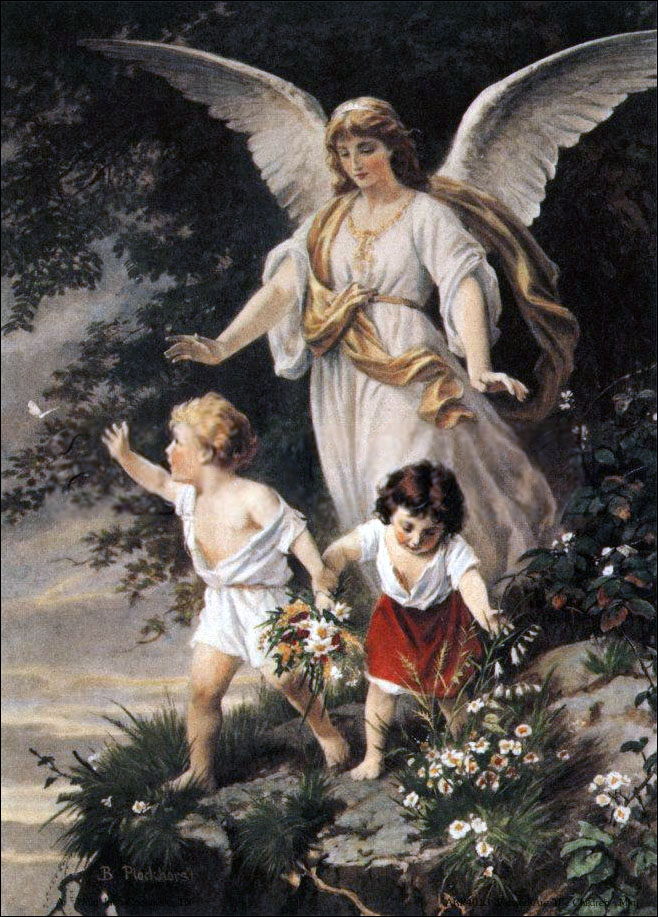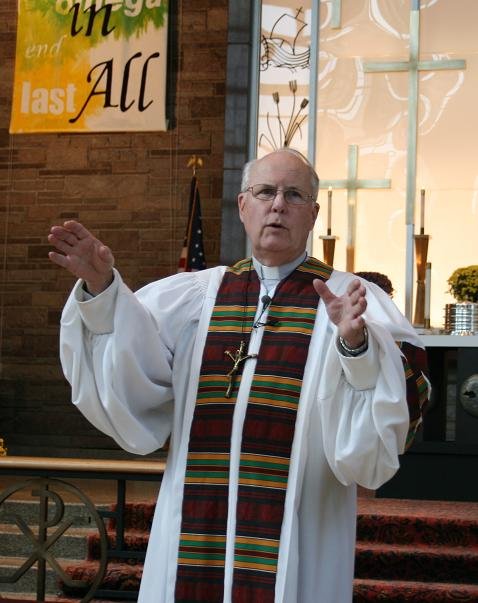Psalm 103:1-5,20-22
Listen to Sermon
“Messengers,” Psalm 103:20
Pastor Tom Johnson, September 29, 2019
The word angel in both Hebrew and Greek is the word messenger. Angels are God’s messengers. As we see in our Psalm, they do God’s bidding. And we see that throughout Scripture. God sends out his angels to enlarge our understanding. Sometimes that message comes through the eye as angels reveal the glory and power of God in their mighty acts. Sometimes that message comes to our ears as they speak heavenly words. Sometimes it comes through the nose as they lift up bowls of incense which are the prayers of believers. Sometimes it comes through touch as angels take hold of us, prevent disaster and deliver us from evil. Sometimes it comes through taste as they bring the burning coals to our lips from God’s Altar to let us know we are forgiven.
There is a common message through all of God’s messengers: “You are loved beyond your human senses. You are loved beyond your earthly existence.” Angels bring us the perspective of unfallen, uncorrupted, unearthly creatures. They are sinless, perfect, heavenly beings created by God for his and our service. Just think about that for a moment. These higher creatures serve us lower creatures. That in itself should astound us—that God would employ angelic spirits to serve us who are flesh and blood. In the Bible, they sometimes appear as glorious and bright stars and other times as mere humans or animals. That is why Scripture reminds us that we sometimes entertain angels “unawares” (Heb 13:2).
We are often unaware of the activity going on around us all the time. As Scripture says, “our struggle is not merely against fresh and blood but against the cosmic powers of this world and spiritual forces of the heavenly places” (Eph 6:12). We often miss God’s message because we are not listening to his Word. We are not looking with the eyes of faith. We are not receptive to God’s ways which are not our ways and his thoughts which are not our thoughts.
Last week I hiked over 50 miles through the Grand Canyon. No picture can capture the depths, the heights, and the breadth of that wonder of God’s creation. Even now, it is hard for me to convey just how insignificant and small I felt as walked through the cold shadows and under the blistering sun. Even those who are far taller and larger than me shared our blessed discovery of insignificance and puniness in the face of the Creator’s handiwork. On one stretch of my hike, I talked to Jeff, one of those on our team from the Midwest. Jeff told me a story of how he and his friend got lost coming down a mountain a few years ago. They came down the wrong path. They got lost in a desolate place. The likelihood of finding another human being was little to none. As they shared their hopelessness with one another, a rainstorm began. Their despair grew. Moments later, a pickup truck started coming their way driven by an odd and friendly fellow. There is no plausible explanation for why that stranger was there, why he seemed to already understand their lostness, and why he was so willing to drive for hours out of his way to take them back to their parked car on the other side of the mountain in a rainstorm. All Jeff and his friend could say to one another was, “Was he real?” After he dropped them off and drove off they asked again, “Was he real?” Those words express the wonder and joy of being found and set on the right path.
 |
| “Guardian Angel” by Bernhard Plockhorst (1825-1907) |
These are Your ministers, these are Your own,
Lord God of Sabaoth, nearest Your throne;
These are Your messengers, these whom You send,
Helping Your helpless ones, Helper and Friend. (“Stars of the Morning, So Gloriously Bright,” LSB 520 v. 2)






